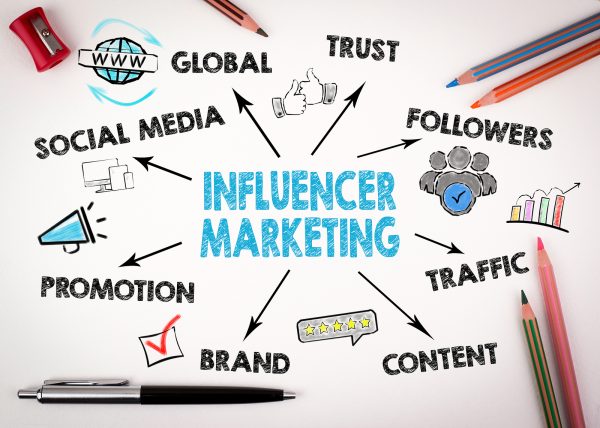The Nigerian digital landscape is evolving rapidly, driven by a surge in internet penetration and mobile technology adoption. In this dynamic environment, influencer marketing has emerged as a potent tool for brands to reach their target audiences in authentic and engaging ways. As traditional marketing channels become less effective amid growing digital competition, partnerships between brands and influencers present transformative opportunities for both parties.
Read more about Tech
The Evolution of Influencer Marketing in Nigeria
In recent years, the rise of social media platforms (such as Instagram, Twitter, and TikTok) has reshaped consumer behavior in Nigeria. Influencers, ranging from micro-influencers with highly engaged niche followings to mainstream celebrities, have become trusted voices that drive consumer purchasing decisions. According to a report by TechCabal, Nigerian consumers increasingly rely on peer recommendations shared through digital channels, which offer authenticity that conventional advertisements often lack. This evolution has been fueled by the nation’s youthful demographic, with over 60% of Nigerians under the age of 35 actively engaging with online content and digital trends.
Historically, Nigerian brands once depended on traditional media such as television and radio for outreach; however, the shift toward digital platforms has necessitated a change in strategy. Influencer marketing has evolved from an experimental tactic to a core component of digital marketing strategies for many brands. As social media becomes the primary source of information for a large segment of the population, influencers are now recognized as digital opinion leaders whose endorsements carry significant weight. This trend is not only redefining marketing practices but also creating a fertile ground for mutually beneficial partnerships between brands and influencers.
Register to attend the Connect Nigeria Business Mixer
Strategic Opportunities for Partnerships
The convergence of digital transformation and evolving consumer behavior in Nigeria has unlocked myriad opportunities for strategic partnerships between brands and influencers. Brands now have the chance to tap into influencers’ engaged audiences to enhance their credibility, extend their market reach, and drive sales. For example, digital marketplaces like Jumia have integrated referral programs that reward both influencers and their followers, creating a viral loop of engagement and trust.
One strategic opportunity lies in leveraging the localized understanding influencers have of cultural nuances. Nigerian influencers often communicate in local dialects and incorporate indigenous trends into their content, making them uniquely positioned to resonate with diverse consumer segments. This localized authenticity helps brands break through the noise of saturated digital markets. As noted by Ojebode in the Journal of African Digital Marketing, tailoring influencer collaborations to reflect regional and cultural specificities can significantly enhance consumer trust and engagement.
Sign up for the Connect Nigeria daily newsletter
Another promising avenue is the integration of real-time data and analytics to optimize partnership strategies. By analyzing social media metrics such as engagement rates, click-through rates, and conversion rates, brands can identify influencers who not only align with their values but also deliver measurable business outcomes. Such data-driven insights allow brands to refine their campaign strategies and forge long-term relationships with influencers who consistently generate high ROI. Furthermore, the use of Artificial Intelligence (AI) in influencer marketing (such as chatbots and predictive analytics) can facilitate more personalized consumer interactions, enhancing the overall customer experience.
Practical Examples and Future Trends
Practical examples of successful brand–influencer partnerships in Nigeria abound. For instance, MTN Nigeria has collaborated with popular Nigerian digital influencers to launch mobile data campaigns that not only boosted sales but also increased brand engagement on social media. Similarly, beverage brands like Maltina have engaged lifestyle influencers to promote their products during major cultural festivals, resulting in heightened consumer interest and increased market penetration.
Looking ahead, emerging trends suggest that the future of influencer marketing in Nigeria will be shaped by greater integration with e-commerce and advanced data analytics. Brands are expected to adopt more sophisticated influencer partnership models that incorporate performance-based compensation, wherein influencers are rewarded based on actual sales and engagement metrics rather than solely on reach. Additionally, the growing popularity of platforms like TikTok is likely to further disrupt traditional marketing paradigms, as short-form, highly creative video content becomes a key driver of consumer behavior in Nigeria.
Moreover, as Nigerian consumers become more discerning about authenticity, brands will need to ensure that their influencer partners uphold transparent and ethical practices. This shift towards transparency is anticipated to foster stronger consumer-brand relationships, ultimately leading to sustainable market growth. Future partnerships may also explore cross-sector collaborations (for example, technology companies partnering with fashion influencers to co-create innovative digital experiences) demonstrating the boundless potential of such alliances in Nigeria’s vibrant digital economy.
Got a suggestion? Contact us: [email protected]
Conclusion
In a market as dynamic as Nigeria’s, the opportunities for partnerships between brands and influencers are vast and transformative. As the evolution of digital consumer behavior continues, brands that harness the authenticity, reach, and cultural insight of influencers are likely to gain a competitive edge. By adopting strategic, data-driven approaches and fostering transparent, localized collaborations, both brands and influencers can drive sustainable growth and innovation in Nigeria’s burgeoning digital economy.


